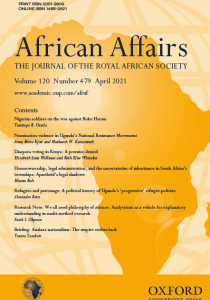The Politics of Socio-Economic Rights - Refugee Economies
Credit: weesam2010, CC BY-NC 2.0
The Politics of Socio-Economic Rights
Refugees’ access to socio-economic rights varies across African states due to differences in host-countries’ legislation, policies, and practices. This research will explore and explain why some states provide refugees with socio-economic rights and opportunities, while others do not.
Many countries do not want to provide socio-economic rights to refugees because they want to encourage them to go home, and do not want to allocate scarce resources to non-citizens. But some countries do let refugees work. This variation matters because socio-economic rights are associated with better welfare outcomes. For example, our research has shown that the right to work and freedom to move is associated with higher income levels, greater mobility, lower transaction costs for economic activity, and more sustainable sources of employment.
The research will build on the initial research we have undertaken in East Africa, and will explore the following sub-questions:
- How have host countries’ legislation, policies, and practices on socio-economic rights varied across country, sub-national region, and historical context?
- Why, in terms of power, interests, and ideas, has this variation existed?
- What interventions or levers of influence can be effective in promoting refugees’ access to socio-economic rights?

